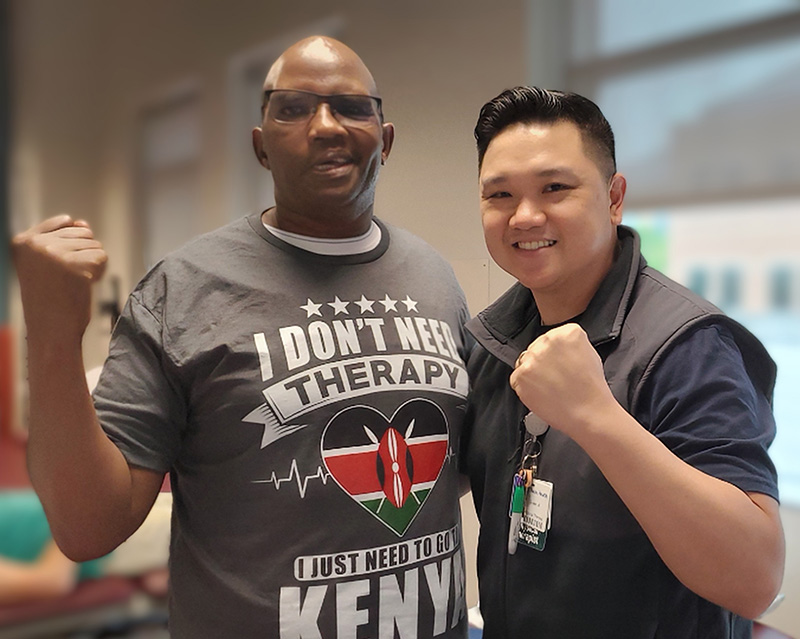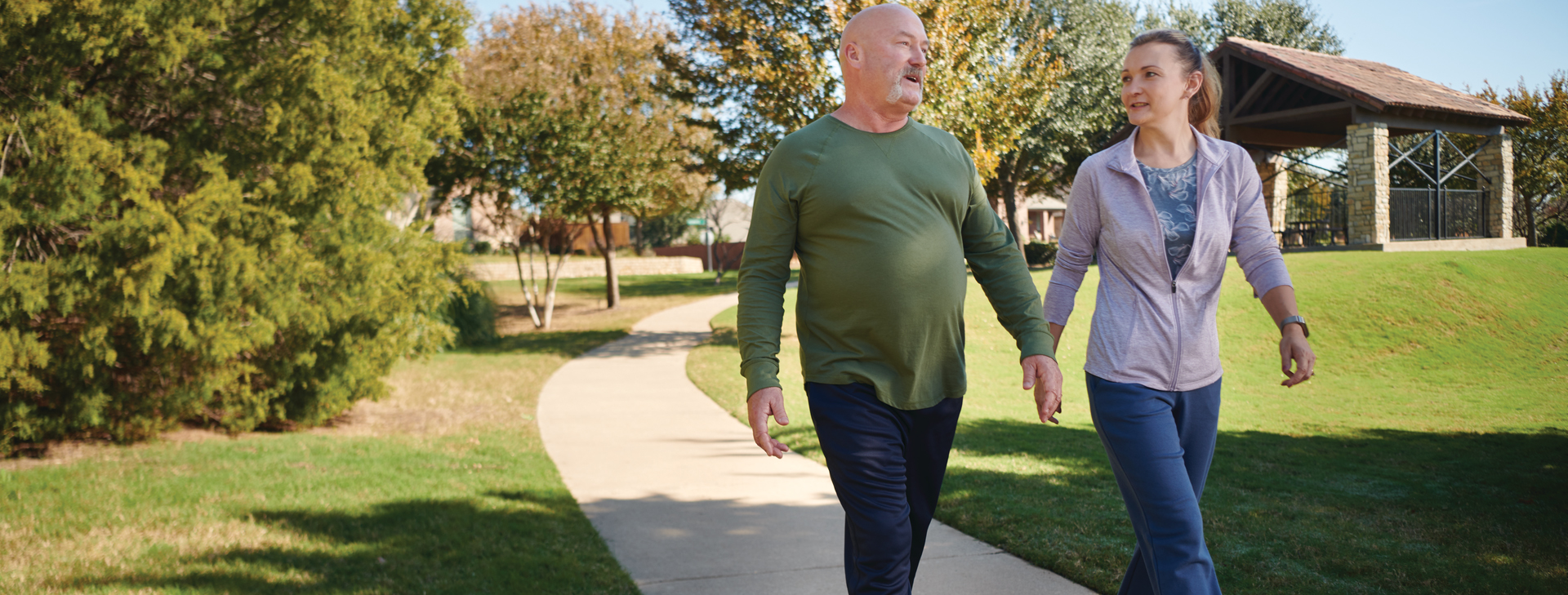Neurological disorders are conditions that affect the brain and nervous system. These conditions can impact a person’s balance, safety, endurance and independence. Neurological therapists provide patient, family and caregiver training and help patients find the right devices to maximize functional mobility.
Conditions treated include:
Brain Conditions
- Brain injury
- Concussion
- Dizziness
- Headaches
- Stroke
Systemic Conditions
- Amyotrophic lateral sclerosis (ALS)
- Balance disorders
- Guillain-Barre syndrome
- Multiple sclerosis
- Muscular dystrophy
- Parkinson’s Disease
- Peripheral neuropathy
- Spinal cord injury
-
Inpatient
Inpatient care provides programs that strengthen and heal the whole person. Patients receive personalized care programs to help them recover from spinal and brain injuries, stroke and other neurological conditions. Learn more about the Inpatient Rehabilitation Center at Texas Health Dallas.
-
Outpatient
Neurological outpatient rehabilitation is designed for people who have suffered a disease or injury involving the brain or central nervous system. This program is helpful for those needing assistance with functional skills such as balance, range of motion, swallowing, speech and language.
-
Activities You Will Experience
We use a variety of activities to help you improve your mobility. They include:
- Multidisciplinary assessments
- Balance training
- Therapeutic exercise
- Speech and swallowing care
- Cognitive therapy
- Assistive device training
- Reaction time training
- Driving rehabilitation
- Vision rehabilitation
-
Your Care Team
Our trained neurological therapists include:
- Physical therapists
- Occupational therapists
- Speech therapists
-
Brain Injury, Concussion and Stroke Specialty Programs
Specialty Programs are intensive outpatient programs that help people make the transition from an acute-care setting to their homes, jobs and communities.
These Specialty Programs are offered at Texas Health Harris Methodist Hospital Fort Worth and are centered on a commitment to personalized care, shaped to help fit your specific needs and goals.
During program hours, you participate in therapies designed to optimize functional, cognitive and physical skills. When appropriate, therapists may go with you to your home or workplace to ease the use of the strategies and skills learned during rehab.
Family members are also considered an integral part in setting therapy goals and transferring skills to the home environment. Because these Specialty Programs recognize that brain injury affects the whole family, various forms of support such as education and counseling are offered to members of your family.








